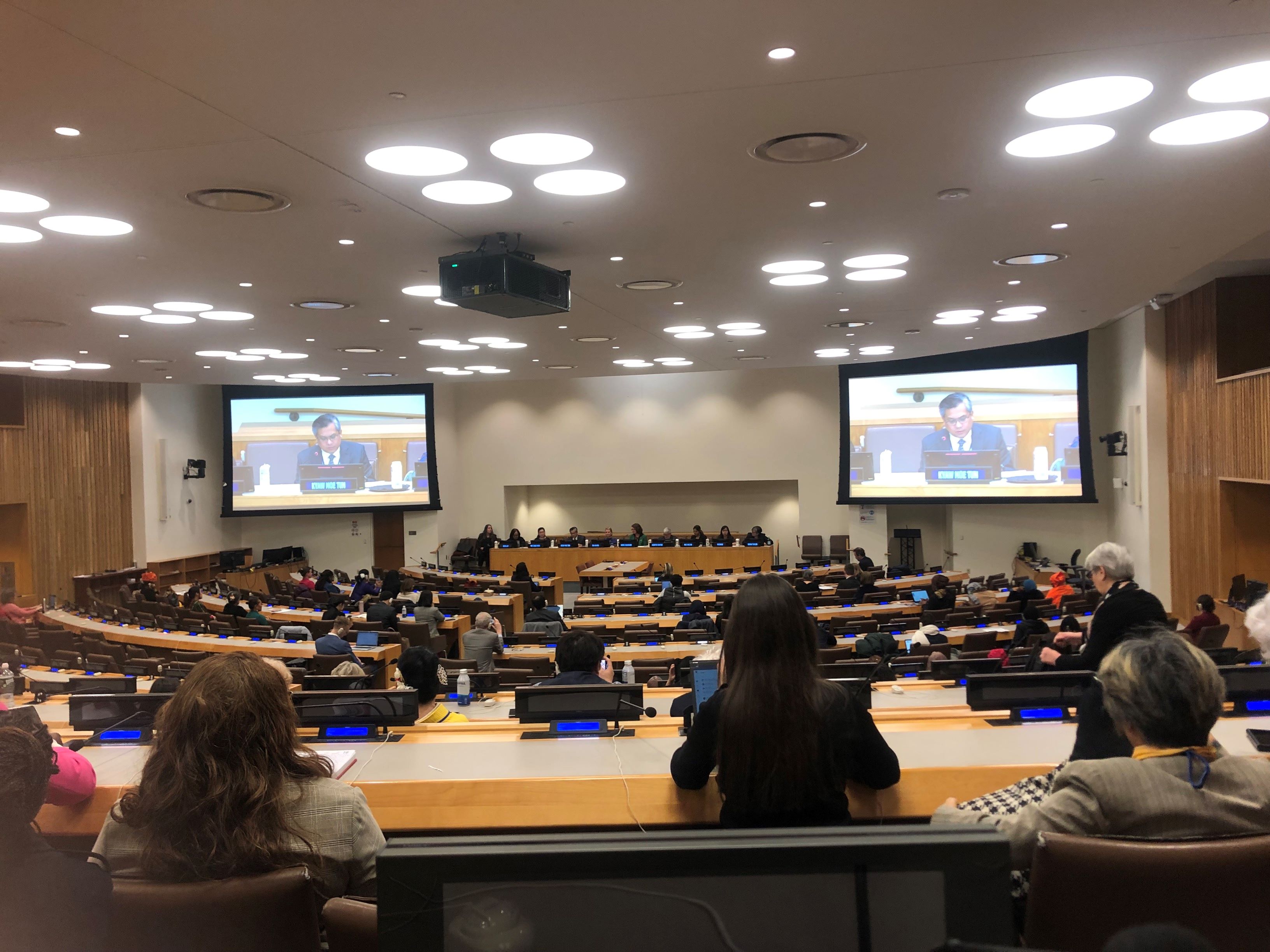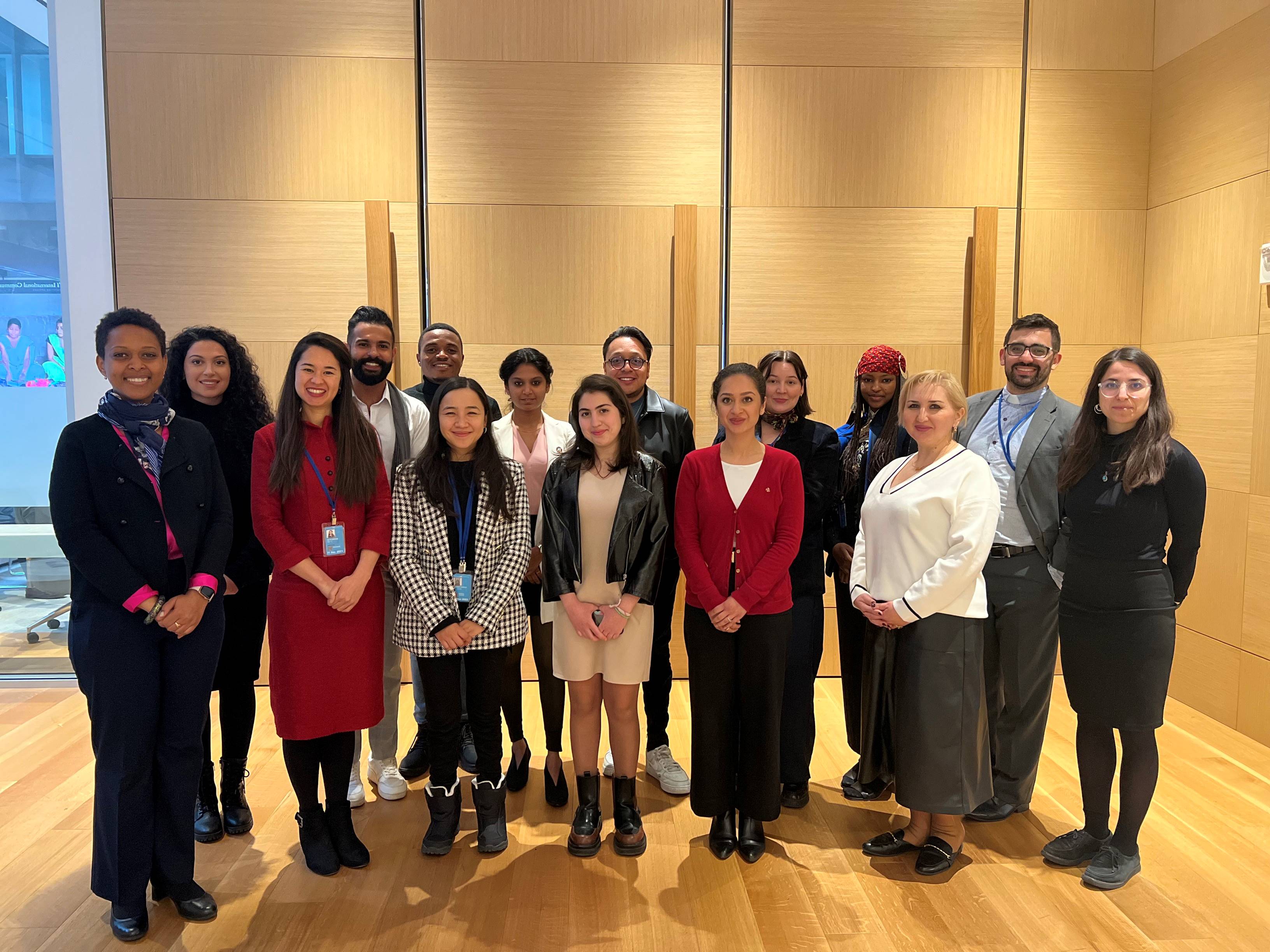Women’s Resilience to Disasters and Youth Leadership in Advocacy at CSW67
A youth leader shares her experiences on the CSW67 and the key opportunities and challenges for youth advocacy
As a recent awardee of the Women Have Wings Award, I was invited to take part in CSW67 as a Youth Delegate Champion. This allowed me to take part in meetings and consultations at CSW67 to represent youth voices and promote inclusive decision-making. My engagements began with serving as a representative of the NGO CSW Committee in Geneva, followed by hosting advocacy workshops for civil society and youth on mobilization through language and bureaucratic advocacy, which was hosted in person by the WFWP International in New York. Following these preparations, I participated in person at the event, which was instrumental for creating networks and mobilizing with other youth activists towards policy measures for protecting the interests of vulnerable women and girls.
With “Innovation and technological change, and education in the digital age for achieving gender equality and the empowerment of all women and girls” as the priority theme of the CSW67, several Member States and international and civil society organizations emphasized the need for protection and safety for women and girls in digital spaces while also focusing on access to technology as a prerequisite for the realization of their rights. Many of these events, organized by a variety of stakeholders, emphasized the need to increase women’s and girls’ access to digital technology to enable their leadership in combatting climate change and building resilience to natural and anthropogenic hazards.

One event which caught my attention was a parallel event organized by the National Rural Women’s Coalition of Australia that focused on the need for greater inclusion of women and indigenous women in policymaking to build resilience against disasters and climate change. This event took place in the format of a conversation circle, making it a consultative process to help better contribute and advance their advocacy to the CSW67 conclusions. The recommendations from these CSOs included the following: i) calling on Member States to implement policies and projects ensuring access to technology for all, in particular for women and girls from rural areas, indigenous women, women living in poverty, people with disabilities, and youth, noting the disproportionate impact of disasters and climate change on such groups; and ii) recommending Member States to implement policies providing access to health, education, and other basic needs through the use of advanced technology, drawing upon the good practices of NGOs in building women’s resilience to disasters and climate change.
As a youth delegate champion, I also had the opportunity to participate in a couple of events as a speaker and facilitator in conversations on the role of young people in these processes for enabling women and girls to build resilience to climate and disaster risks and impacts through access to technology. This included an event organised by the Women’s United Nations Research Network on the impact of conflict on the digital rights of women, which was very inclusive and ensured the voice of young people and their demands were heard. CSW67 was not devoid of challenges, however -- for example, there was pushback from Member States on the use of more inclusive gender terminology in the Agreed Conclusions. This, therefore, remains a key demand that youth activists need to mobilize for advancing in other platforms and spaces.

Even so, I concluded my participation at CSW67 encouraged by the large number of youth participants and the establishment of the Youth Forum, which prioritised the leadership of youth in advocacy and created hope for greater engagement of youth in the future of decision-making for gender equality at the global level.
